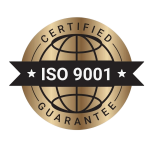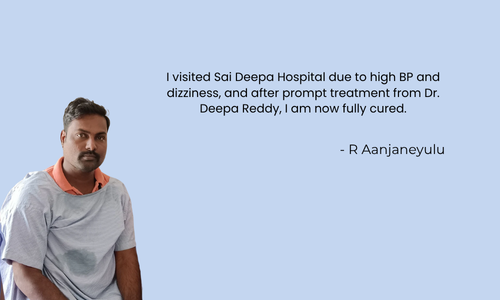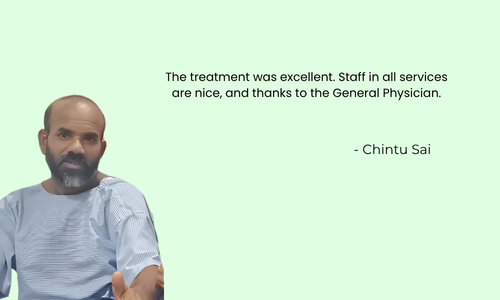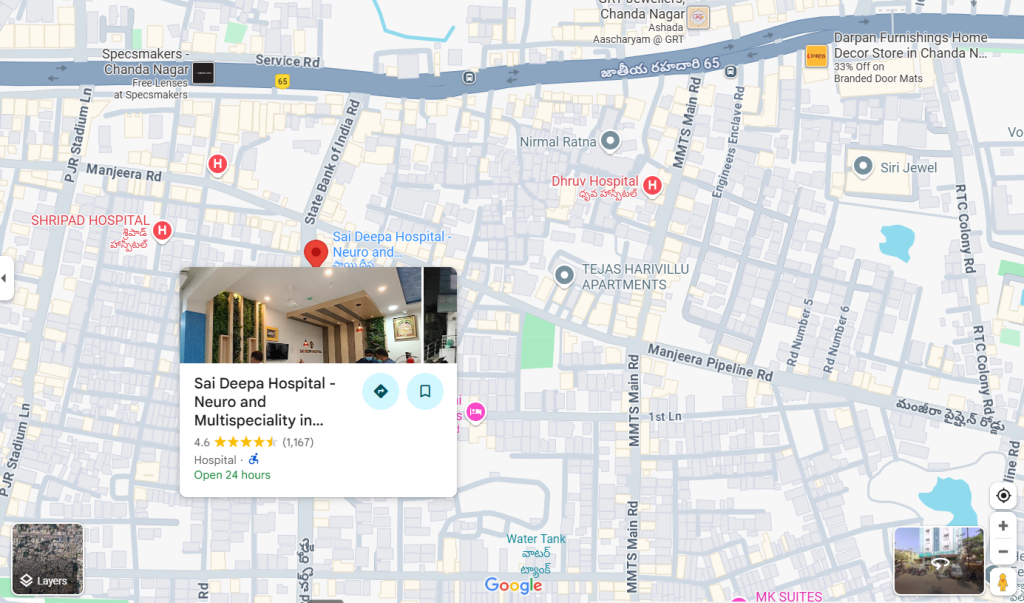Best Piles Treatment in Hyderabad
- Home
- Best Piles Treatment in Hyderabad
Best Piles Treatment in Hyderabad
Piles, also known as hemorrhoids, are a common health issue that affects millions of people across all age groups. These swollen and inflamed veins in the rectum and anus can cause significant discomfort, but the condition is manageable with proper care and treatment. This blog will provide a comprehensive overview of piles, their symptoms, causes, treatment options, and prevention tips.
Book an Appointment
1L+
Happy Customers
25+
Qualified Doctors
50
Rooms
5000+
Successful Surgeries
Get a
Consultation
24/7 Ambulance
Facility
Insurance
Claim Support
What Are Piles?
Piles are swollen veins located in the lower part of the rectum or anus. They can develop inside the rectum (internal hemorrhoids) or under the skin around the anus (external hemorrhoids). In many cases, piles are mild and may go unnoticed, but in more severe cases, they can cause pain, bleeding, and discomfort during bowel movements.

Dr. Sasidhara Roa A
MBBS, MS
5000+ Successful Surgeries
11+ Years of experience
Dr. Sasidhara Rao A. is an experienced General and Laparoscopic Surgeon at Sree Sai Deepa Hospitals, Chandanagar, with over 11 years of expertise and 5000+ successful surgeries. He specializes in laparoscopic, laser, and microscopic surgeries, treating conditions like piles, fissures, varicose veins, and gallbladder issues.
Doctor’s Fellowships:
Fellowship - International Society of Coloproctology
Fellowship in Intimate Health
Fellowship in Diagnostic Endoscopy
What Are the Types of Piles?
Piles are generally categorized into four main types:
- Internal Piles: These occur inside the rectum and are usually painless, though they may cause bleeding.
- External Piles: Found under the skin around the anus, these can be painful and may swell or bleed.
- Prolapsed Piles: Internal piles that have slipped outside the anal opening, causing discomfort and irritation.
- Thrombosed Piles: External piles with a blood clot, which can be extremely painful and require urgent medical attention.
Hemorrhoid Symptoms
Recognizing the symptoms of piles early can help in effective management. Common symptoms include:
- Bright red blood during bowel movements
- Itching or irritation around the anal region
- Pain or discomfort, especially while sitting
- Swelling or lumps near the anus
- A feeling of incomplete bowel evacuation
- Mucus discharge during bowel movements
What Are the Treatments for Piles?
Treatment options vary depending on the severity of the condition:
Home Remedies and Lifestyle Changes:
- High-fiber diet: Eating fruits, vegetables, and whole grains helps soften stool.
- Hydration: Drinking plenty of water reduces straining during bowel movements.
- Warm baths: Soaking in a warm sitz bath can relieve itching and pain.
- Over-the-counter creams and ointments: These can reduce inflammation and soothe discomfort.
Medical Treatments:
- Medications: Pain relievers, stool softeners, and topical treatments may be prescribed.
- Non-surgical procedures: Rubber band ligation, sclerotherapy, and infrared coagulation shrink or remove piles.
- Surgery: In severe or persistent cases, surgical removal (hemorrhoidectomy) or stapling may be recommended.
Get your surgery cost
Piles in Pregnancy
Piles are common during pregnancy due to increased pressure on the pelvic veins. Hormonal changes and constipation further contribute to their development.
Pregnant women should consult their doctor before using any medication and focus on natural remedies such as fiber-rich diets, hydration, and gentle exercise.
Preventive strategies include avoiding long periods of standing or sitting, practicing Kegel exercises, and avoiding straining during bowel movements.
Causes and Risk Factors of Piles
Several factors increase the risk of developing piles:
- Chronic constipation or diarrhea
- Straining during bowel movements
- Sitting for long periods, especially on the toilet
- Obesity
- Pregnancy
- Low-fiber diet
- Aging
- Heavy lifting
- Genetic predisposition
How Can I Treat Piles at Home?
Home treatment focuses on symptom relief:
- Apply cold compresses to reduce swelling.
- Use witch hazel or aloe vera for soothing relief.
- Avoid straining and practice good toilet habits.
- Perform regular physical activity to improve digestion.
- Consider herbal remedies like Triphala or Isabgol (psyllium husk) for mild relief, but always consult a healthcare provider first.
Accreditations

Saideepaneurocare Hospitals is NABH certified, a mark of excellence in patient safety and care. We follow stringent healthcare protocols and maintain world-class hygiene standards.

We are ISO 9001 certified, ensuring the highest standards in quality management and patient care. This certification reflects our commitment to efficient processes and continuous improvement in healthcare services.
How Can I Prevent Piles?
Prevention is possible with simple lifestyle adjustments:
- Maintain a fiber-rich diet.
- Stay hydrated.
- Avoid straining and prolonged sitting.
- Exercise regularly to promote bowel health.
- Respond promptly to the urge to defecate.
- Avoid excessive use of laxatives
Surgical Options for Piles
When conservative treatments fail to provide relief or in severe cases, surgical intervention may be necessary. Common surgical options include:
Hemorrhoidectomy: This is the surgical removal of large or prolapsed hemorrhoids. It is highly effective and typically performed under general or spinal anesthesia.
Stapled Hemorrhoidopexy: Also known as stapling, this procedure involves repositioning the hemorrhoids and cutting off their blood supply using a surgical stapler. It causes less pain than a traditional hemorrhoidectomy and has a quicker recovery.
Laser Hemorrhoidoplasty: A minimally invasive procedure where laser energy is used to shrink hemorrhoidal tissue. It causes minimal pain, has a shorter recovery time, and less postoperative discomfort.
Doppler-Guided Hemorrhoidal Artery Ligation (DGHAL): This technique uses ultrasound to locate and tie off the arteries supplying blood to the hemorrhoids, reducing their size and symptoms over time.
These surgical procedures are generally safe and effective, offering long-term relief for patients with chronic or complicated piles.
What Is the Process of Surgery for Piles?
Here is a step-by-step breakdown of the surgical process for piles:
Preoperative Assessment: Includes a consultation with the surgeon, medical history review, and necessary blood tests.
Anesthesia: Depending on the procedure, local, spinal, or general anesthesia is administered to ensure patient comfort.
Surgical Procedure: The surgeon removes or reduces the hemorrhoids using the selected technique (e.g., hemorrhoidectomy, laser surgery, stapling).
Postoperative Care: Patients are monitored for a few hours. Pain relief medication and wound care instructions are provided.
Discharge: Most patients are discharged the same day or within 24 hours with follow-up guidance.
Recovery Period: Complete recovery usually takes 1 to 2 weeks. Patients are advised to rest, eat a high-fiber diet, and avoid strenuous activities.
Sai Deepa Hospital - Neuro and Multispeciality
Plot no 387, Church road, Huda colony, Chanda Nagar, Hyderabad – 500050
Which is the Best Hospital to treat Piles in Hyderabad
When it comes to effective and advanced piles treatment in Hyderabad, Sree Sai Deepa Hospitals in Chandanagar stands out for its experienced medical team, modern facilities, and patient-centric care.
Known for offering both non-surgical and surgical options, including laser treatments for piles, the hospital ensures faster recovery and minimal discomfort. The dedicated proctology team, supported by skilled nursing staff, makes Sree Sai Deepa Hospitals one of the most trusted destinations for piles treatment in Hyderabad.
Book a Consultation Today!
📍 Sai Deepa Hospitals, Chanda Nagar, Hyderabad
📞 Call or WhatsApp: +91-7093762716
🌐 www.saideepaneurocare.com
Patient Reviews



FAQ's on Piles
1. How can I treat piles in 3 days at home?
While complete healing in 3 days is unlikely, you can reduce symptoms by increasing fiber, staying hydrated, taking warm sitz baths, and using over-the-counter creams. Prompt relief may also come from applying cold compresses and avoiding irritant foods.
2. Which food to avoid in piles?
Avoid spicy foods, processed foods, red meat, and low-fiber items like white bread and dairy, as they can worsen constipation. Limit caffeine and alcohol, which can lead to dehydration.
3. What is the best medicine for piles?
Topical treatments like hydrocortisone cream, oral pain relievers, and stool softeners are commonly used. For persistent cases, your doctor may prescribe stronger medications or suggest minimally invasive procedures.
4. Do's and don'ts during piles?
Do: Eat fiber-rich foods, drink water, and take sitz baths.
Don’t: Strain during bowel movements, sit for too long, or ignore the urge to go.
5. What is the best cream for piles?
Popular options include creams with hydrocortisone, lidocaine, or witch hazel. Always consult your healthcare provider before using any medication to avoid irritation.
6. How to stop piles fast?
For fast relief: combine dietary changes, topical treatments, and warm baths. Avoid constipation triggers and seek medical advice if symptoms persist or worsen.


